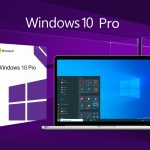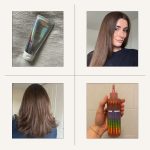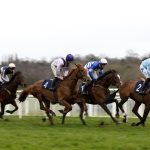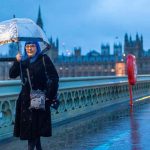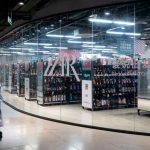There are now 763 in hospital with the virus, 69 of which are in intensive care.There were 148,410 tests conducted in the past 24 hours. In NSW, 95 per cent of people aged 16 and over have received a first dose of the vaccine, while 93.5 per cent are fully vaccinated.Prime Minister Scott Morrison on Thursday revealed new changes to close contact definitions and testing requirements across each State and Territory.He said despite each state being at different states of dealing with it, they have all agreed on “a very practical way forward”.It comes as Victoria has recorded 5919 new cases and seven Covid deaths in the past 24 hours. There are now 428 infected people in Victorian hospitals, with 54 active in intensive care and 21 on ventilators.More than 92 per cent of eligible Victorians are fully vaccinated and the state has 28,8044 active cases.A total of 66,744 tests were taken on Wednesday and 3798 vaccines were administered at state hubs.It comes as scorching temperatures are set to force the closure of some Victorian testing sites across the New Year’s period. Cars line up for Covid testing at Albert Park. Picture: NCA NewsWire / Ian CurrieThe impending move is expected to cause chaos for the already embattled system that has tested hundreds of thousands of people over the past week as Covid infections soar.Victoria’s Department of Health gave the warning on Thursday, noting testing centres operating from outdoor tents would be the most likely affected.Temperature inside the tents can rise as much as 10 degrees higher than outside in addition to staff working in full PPE.The mercury is expected to hit 36C in Melbourne on New Year’s Eve. January 1 also set to be a scorcher with highs of 35C predicted.‘BRAKES CAN’T COME OFF COMPLETELY’Doherty Institute director Sharon Lewin said that the “brakes can’t come off completely”, after a major shake up of the nation’s isolation and testing requirements.“The predictions are that we will see very, very high numbers of cases,,” she told the Today Show on Friday.“But what we are hoping, and based on what we’re seeing around the world, is that it won’t lead to large numbers of hospitalisation.“There will be some hospitalisation. So, we can’t take the brakes off completely here which means why it’s important to still wear masks when you are out.“That’s why it’s important anyone eligible for boosters should be getting them now, at four months.“Even if Omicron is much less severe, having a very large pool of people that are infected still puts pressure on our healthcare system.”PM’S NEW CLOSE CONTACT RULES REVEALEDPrime Minister Scott Morrison has revaled new changes to close contact definitions and testing requirements across each State and Territory.“Omicron requires us to undertake a change of how we are managing the pandemic, and we need to reset how we think about the pandemic, and how we manage ourselves and the things we need to do as governments,” he said.“Omicron is a game changer. It has been in the country for just over a month.”Mr Morrison said the new definition that requires testing and isolation will come into effect in five jurisdictions at midnight Thursday, which include NSW, Victoria, Queensland, South Australia and in the ACT. Tasmania will follow on January 1 with the Northern Territory and Western Australia will be making announcements in future. He said a close contact is now a household contact of a confirmed case only. A household contact is someone who lives with a case or has spent more than four hours with them in a house, accommodation or care facility setting. “So, you are only a close contact if you are, effectively, living with someone or have been in an accommodation setting with someone for more than four hours with someone who has actually got Covid,” he said. “Now a confirmed case would isolate seven days from the date. So, someone who actually has Covid, from the date that they would took the test, they would have to isolate for seven days and have a negative rapid antigen test, on day six, prior to being able to leave isolation after seven days. “A closer contact that is symptomatic must have a PCR test, still. So, if you are symptomatic, and that goes for anyone who is symptomatic, by the way, if you are symptomatic, then the right test is a PCR test. “A close contact who is asymptomatic, does not have symptoms, must have a rapid antigen test, and if positive, they must then have a PCR test. “In that case, they become a confirmed case and the rules that apply to confirmed cases apply to them. “Now, close contacts that return a negative test, they must remain isolated for those seven days because symptoms and other things can present later. And that is seven days from their date of exposure to the person who is a confirmed case, and they also will have a rapid antigen test on day six.“So, to summarise, if you are a confirmed case, seven days.“On the sixth day, you have a rapid antigen test and if that is negative after seven days, you can go back into the community.“If you are a close contact, you get a rapid antigen test. If that returns a negative, you still remain in isolation for those seven days and you have a rapid antigen test again on day six.“If you are a close contact and you are symptomatic, go and get a PCR test.“If you are a close contact that returns a positive test, go and get a PCR test.”Mr Morrison said if this does not apply to your situation, do not go and get a test. “If you don’t fulfil this definition of a close contact then there is no need for you to be in that line,” he said. “You should go home. Go to the beach, go and do what you want to do. Read a book in the park. Follow all the normal, common sense things that you would do, monitor your symptoms, follow the Covid safe practices, make sure you have booked for your booster, do all of those sorts of things but there is no need for you to be in that line.”Mr Morrison also said that rapid antigen tests will be provided at testing centres as they transfer over the next few weeks from PCR to rapid antigen tests.“Some large states will be moving to get those rapid antigen tests to those testing centres as soon as they can and that will happen over the next few days and the next few weeks,” he said. “If you are eligible for a rapid antigen test and if there is one there at that time, you will be given one. You will go home, take it and follow those rules.“If there is not a rapid antigen test there then we will still give you a PCR test in the transition.”“I know this is a bit different to what you have been hearing over the last couple of years. That is the gearchange. That is the reset. That is what we need people to really understand, and I know it is a change from what has been said, but dealing with Delta is very different to dealing with a Omicron, and to ensure that our public health systems work as effectively to keep as many people are safe as possible, that is why we need to make this change.”Mr Morrison said there will only be free tests if you meet the criteria. But vulnerable groups will still be able to access them.“Anyone else who would like to get a rapid antigen test, well, go to your pharmacy all the supermarket or the warehouse, big suppliers, where, we believe, as a result of making this change and being very clear about who is being provided with a public test and who is not, all the private industry who gave us that advice this week, they can go now,” he said. “They can book their supplies, they can get them on the shelves and not have any concern that, somehow, a new policy will come in and tests will be handed out to anyone who wants one.“It was agreed today that will not be the policy in Australia.“Rapid antigen tests will be provided publicly at those testing centres for those who require one according to the rules that I have set down, and we have taken out of National Cabinet today.”Professor Paul Kelly said it was “becoming very clear now” that Omicron is a less severe variant.“It is a different virus, very different from previous versions of the virus we have seen over the last two years,” he told reporters.“What is the difference? We know it is very transmissible … and is transmitting fast in the community as we have seen, 110,000 active cases now in Australia and that is continuing to rise.“I expect it will continue to rise.”NED-4835-rapid-covid-testMr Morrison said there had been a “great deal of cooperation” between state and territory leaders.“We took on the advice that had come, particularly from the Chief Medical Officer, and then worked practically through the many things that we as leaders have to ensure that we get the balance right on,” he said.“With Omicron, we can’t have hundreds of thousands of Australians and workers taken out of circulation based on rules that were set for the Delta variant.“We need rules for the Omicron variant, so we can keep our economy going.”Mr Morrison said it was his hope that Australians could enjoy New Year’s Eve celebrations while exercising common sense.“What I would like people to do tomorrow night is (to) enjoy the evening,” he said.“I would like them to be looking forward to 2022, and looking forward confidently because Australia’s future is bright.”Chief medical officer Paul Kelly urged people to wear masks when in crowded settings. “Other than that, enjoy the new year and let’s hope for a better 2022,” he said.HUNT: MORE BOOSTER SHOTS Health Minister Greg Hunt has announced five million extra booster doses will be delivered to providers across Australia by the middle of January.Speaking at a press conference on Thursday morning, Mr Hunt said they had now passed 2.25 million Covid vaccine booster shots becoming available to providers.He said they expected to be 700,000 doses ahead of schedule by the New Year and they would ramp up deliveries for two weeks.“We’ll be expanding the vaccines that are being delivered in the first two weeks of January between now and the 15th of January,” he said.“We’ll be delivering over five million vaccines, significantly increasing the numbers that are available.”Mr Hunt said that meant nine million booster doses would become available by that deadline to Australians.“Please come forward if you haven’t had your booster yet and you are eligible,” he said.“There is every opportunity to be boostered.”He also said for those partying on New Year’s Eve: “Avoid the moshpit, don’t pack in in large close numbers, that’s common sense,”LAMBIE BLASTS PM ON COVID TESTING Tasmanian senator Jacqui Lambie said every Australian should have got a rapid antigen test for Christmas, as she rejected the Prime Minister’s move to change PCR rules.“If I was Prime Minister I would have given everyone a Christmas test, in the post, a rapid antigen test,” she told Channel 9’s Today.“Just so everyone can have one on their kitchen bench to check.“The other thing that worries me is if the Delta variant gets mixed in, that’s what people are worried about.“The Omicron (variant) is not as bad but if Delta gets back in the mix, that’s what people are concerned about.“But like I said most people are saying, ‘two years of this crap we’ve had enough, we want to get on with our lives’.“We need to weigh up where people are, where people’s mental health is, all the rest and try to get on with this, build some immunity to it and do that very quickly because we do not know what’s going down the line in the future.”She later told Sky News Australia she was against changing rules for international arrivals around PCR testing. “It’s better to be safe than sorry … we are struggling to handle Omicron as it is,” she said.“We just need to get the booster shot into us … and look at it down the track.” A top AMA doctor has also slammed Prime Minister Scott Morrison’s plan to redefine close contact and isolation rules in a bid to achieve a national uniform approach. Australian Medical Association president Omar Khorshid argues the plan will increase transmission and accelerate cases. “Omicron spreads more easily than any other variant,” Dr Khorshid said on Twitter.“It doesn’t care if you are a family member, a co-worker, a drinker in the pub or breathing the same air in a lift. Isolating close contacts slows spread. Isolating less people means faster spread.”Dr Khorshid suggested authorities improve testing rules and processes in order to detect who’s positive faster. “Redefining close contacts will simply accelerate the outbreak. I don’t think you could call the NSW experiment a success yet. Let’s not give up on slowing the spread,” he said. “Vaccines, testing and public health measures have worked so far and remain the best option for living with Covid.”TODDLER DIES WITH COVIDA toddler infected with Covid-19 has died in South Australia.“A Covid-positive child under the age of two has, sadly, passed away,” Premier Steven Marshall told reporters on Thursday.“This is still being determined as to the cause of death. Obviously, we will refer this to the coroner.”Mr Marshall said if a person died while infected with Covid-19 it did not necessarily mean that was the cause of death.“We will need to do that investigation,” he said.“Obviously, it’s a tragic circumstance for the family.”Mr Marshall said he was “not prepared” to say whether the child was being treated in hospital before their death.“The family is obviously in a great deal of distress at the moment,” he said.The child is the sixth person with Covid-19 to die in South Australia since the start of the pandemic.A Covid-positive woman, aged in her 90s, died in Adelaide on Sunday.SA recorded 1374 new positive cases overnight, which was a slight reduction on Wednesday’s numbers.The Premier also revealed there were still 37 people in hospital, with four people in intensive care and one of them on a ventilator.He urged people to get their booster shots.“It still remains a massive logistical exercise to get so many people vaccinated in such a short period of time,” the Premier said.QLD WARNED; RECORDS 2222 CASESQueenslanders are being told to brace for tens of thousands of Covid cases a day as the Omicron outbreak continues to tear across the country. The advice follows Thursday’s national cabinet meeting, which saw a national definition for close contact created. Queensland’s chief health officer John Gerrard agreed with the change but said people should prepare for a major case spike as Covid seeps across the community.“I’m talking to my colleagues in hospitals regularly and I can say it is likely in the coming days that there will be intensive care admissions … there definitely are sick patients in hospital,” he said.“We’re not going to be talking about 8000 cases in a few weeks, we’re going to be talking about tens of thousands of cases and that’s what a pandemic is about – very large numbers of cases.”Chief health officer Dr John Gerrard has predicted Queensland will soon hit 10,000 Covid cases a day. Picture: Zak SimmondsHowever, Dr Gerrard also said the surge was happening at a relatively optimal time due to warm summer weather and more than 86 per cent of the state being fully vaccinated.“This is the time to be having a pandemic,” he said. “If we are to experience this pandemic, in January is probably the best time because it’s warm and we know that the virus spreads more easily in the cooler months.” Queensland recorded 2222 new Covid cases on Thursday, bringing the state’s active cases to 8586. Dr Gerrard will reveal Friday’s case numbers at a news conference in Brisbane on Friday morning.Queensland recorded 2222 new Covid cases on Thursday.There are now at least 29 infected people being treated for Covid in Queensland hospitals with no cases in intensive care, while 1809 patients are receiving care in home. More than 86.2 per cent of eligible Queenslanders are fully vaccinated and the state has 8586 active cases.A total of 35,179 tests were taken yesterday and 11,700 vaccines were administered at state hubs, of which more than half were boosters. A shipping container is to be used as a temporary morgue on Palm Island in Queensland as fears grow of a Covid surge in the community with low vaccination coverage.Palm Island Aboriginal Shire Council uploaded the grim image of the white shipping container, which they said was received from Queensland Health, on their social media pages.The post said the temporary morgue, which would be ready for use by January 5, is the “starkest reminder yet that locals are a serious risk of illness and death from Covid”.The council urged residents to avoid tragedy by getting vaccinated.Local disaster management group chair and Palm Island mayor Mislam Sam said doctors were warning the island could lose as many as 60 residents. “We all look at the current infection numbers and think that’s what will happen here, that we won’t get real sick or die,” Mr Sam said.“The big difference is our population is massively under vaccinated compared to the rest of the Qld.”“All medical advice to us indicates deaths are anticipated from Covid on Palm and that is an avoidable tragedy waiting to happen.”We have very ill people in our community and low vaccination rates.”While health authorities must plan for the worst, we can do more to make sure no one needs to use this morgue. The only way is go get vaccinated today.”We can stop that possible tragedy just by getting vaccinated now and keeping our masks on.”“I don’t want to see this temporary morgue used at all,” Mr Sam added.“Health advise the facility will be ready from January 5. Let’s make sure we never need to use it please”He added the Joyce Palmer Health Service, run by Qld Health, and the Palm Island Community Company, who Qld Health are working in partnership with, were ready to vaccinate and “will come to you”. Palm Island has only 58.4 per cent double vaccination rates, according to the Australian Government’s most recent vaccination statistics, compared to Queensland at 86.1 per cent fully vaccinated.NRL GETS ON FRONT FOOTThe NRL has ordered tens of thousand of rapid antigen tests to ensure its players can return to training and games.They will be admnistered daily for both male and female players once they return from their two-week Christmas break.Players are expected to star reporting back to pre-season training from next week, The Australian reports.The NRWL’s postponed 2021 season is due to start on February 27. It is understood the NRL also is finalising more biosecurity measures, to be introduced next week. “We’ll be testing everyone daily before they go to training for quite a few months,” an NRL spokesperson said.“We’ll be giving details to clubs next week with the exact procedures they need to follow.”CORK IT ON NEW YEAR’S EVE, SAYS SA HEALTH OFFICERSA’s chief public health officer Professor Nicola Spurrier has urged South Aussies to make this New Year’s Eve “the quietest anybody has ever had” in a bid to stop the spread of Omicron.As a record 1471 Covid-19 cases were recorded in South Australia on Wednesday, in addition to thousands of active cases, Prof Spurrier told radio station FIVEaa restrictions would remain for an unknown amount of time.“I think we do have a very serious situation with this outbreak, we’ve got some Delta but obviously what‘s really driving this is Omicron,” Prof Spurrier said.“Our plan here in South Australia is to have some restrictions in place, and what I really want to emphasise today is if you don’t need to be going out and about, please stay away from other people and only go out for essential reasons.“I want this to be the absolute quietest New Year’s Eve anybody has ever had. You can still make a bit of noise by yourself, I fully intend to do that on my own veranda.“You can meet up with people on Zoom or Teams meeting and celebrate that way but we really do not want to have lots of people getting together during that New Year’s Eve period because again, it will trigger a whole lot of those super-spreading events.”
Powered by WPeMatico

